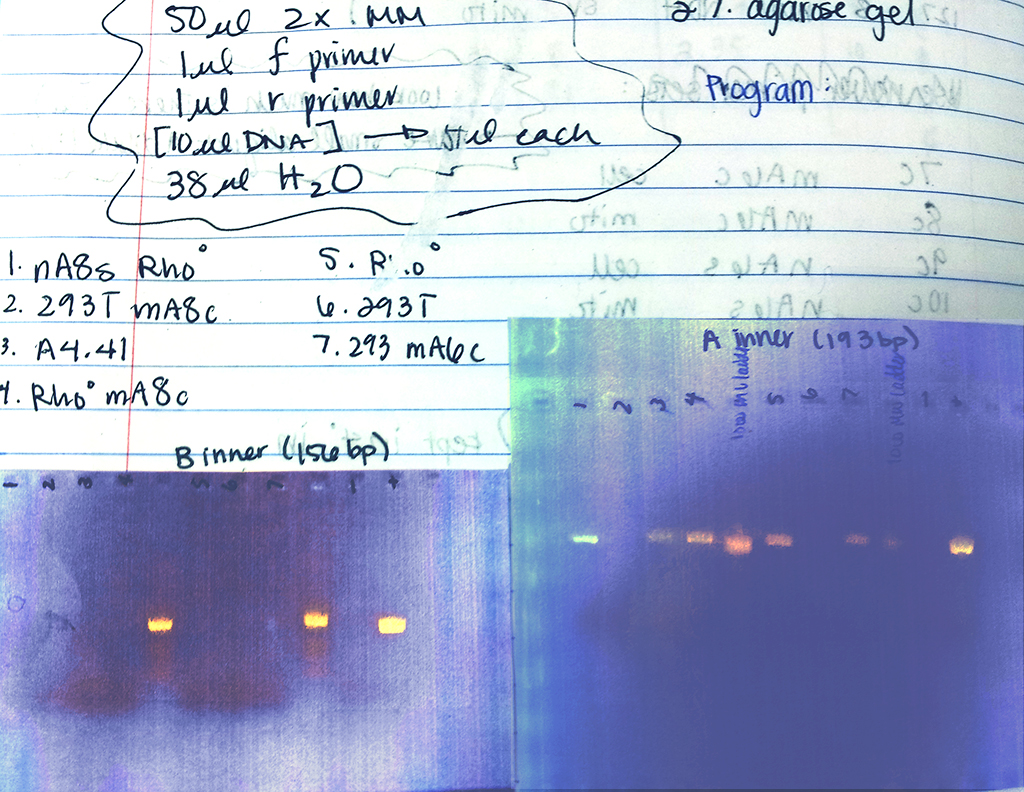Ali will receive her B.S. in Biomedical Engineering from the University of California at Irvine in June 2013 after just three years of study. She worked in the Cardiopulmonary Transport and Tissue Remodeling Laboratory at UCI starting as a freshman, culminating in a project in her final year to develop a 3D in vitro model of human microvasculature for studying metastasis. During her 2012 summer internship with the MitoSENS team at the SRF Research Center in Mountain View, CA, Ali developed a method for detecting mycoplasma contamination, as she describes below.
2012 Project
“Mycoplasma is a bacterium that is a common contaminant in mammalian cell culture because it is difficult to detect by routine inspection. Since mycoplasma can alter cellular function, it is necessary to rigorously identify and remove signs of contamination. Working with the MitoSENS research team last summer, one of my goals was to devise a mycoplasma screening protocol that would monitor and identify contaminated samples.
Using PCR-based commercial assays as a guide, I optimized an assay for identifying two common strains of mycoplasma. I then found that some of our cell cultures were indeed contaminated. This was not a problem, however, because mycoplasma contamination is treatable. The MitoSENS team implemented an antibiotic treatment for these cultures and continues to use my mycoplasma screening assay as a safeguard against further contamination.”

Figure 1.
Future Plans:
Ali returns to the SRF Research Center this summer to work on the problem of damage to mitochondrial genes. Mitochondrial genes are prone to damage from by-products of cellular respiration, which leads to a loss of cell function. Ali’s 2013 summer project will be to investigate two possible methods of supplying proteins to the affected mitochondria, in order to restore proper function. This fall, Ali will begin the next chapter of her career as a Biomedical Engineering graduate student at the University of Minnesota.


